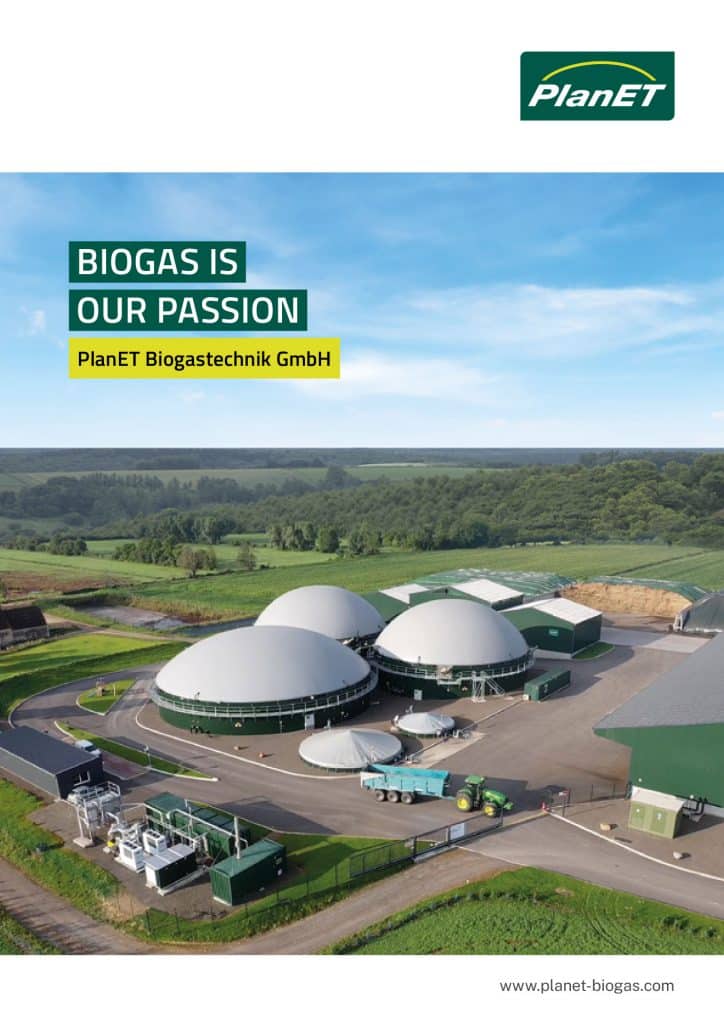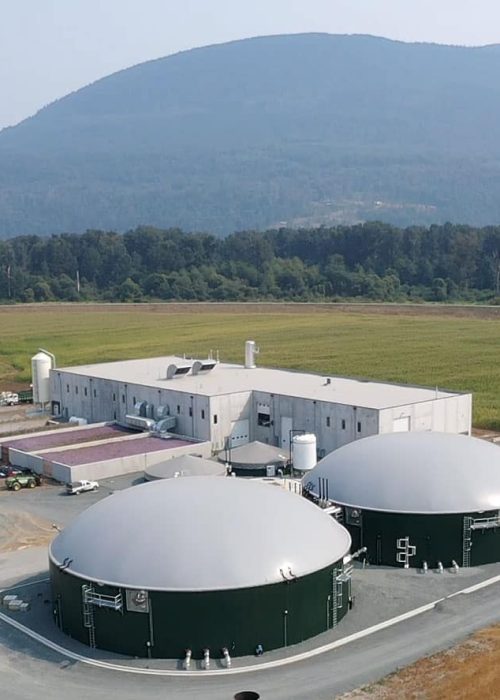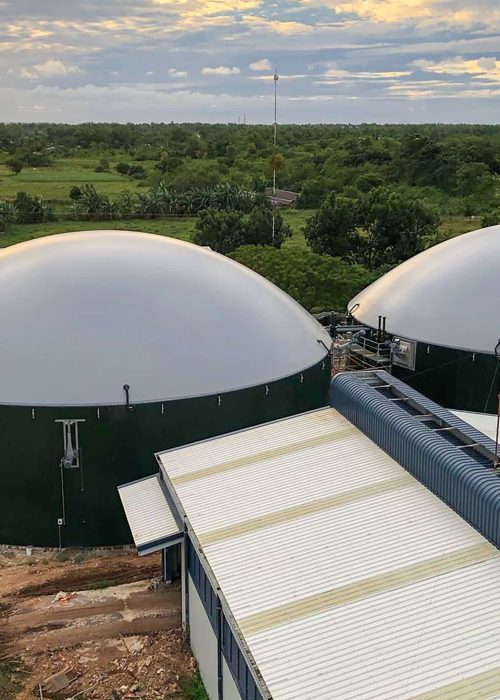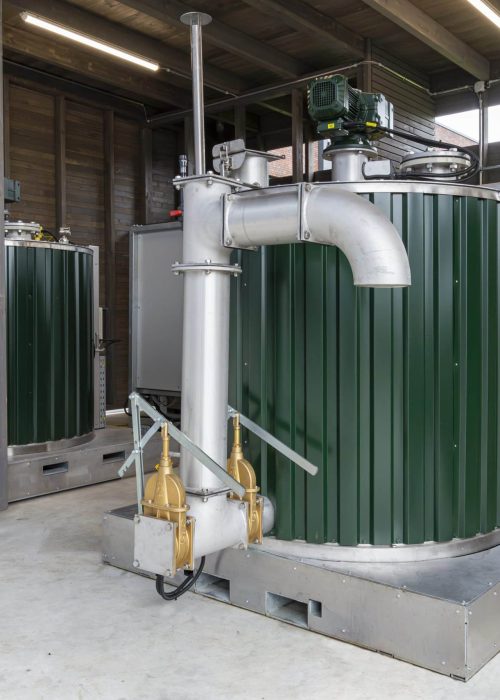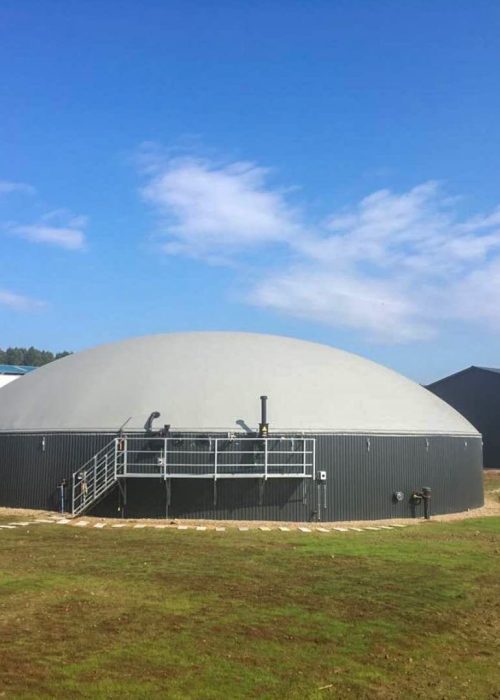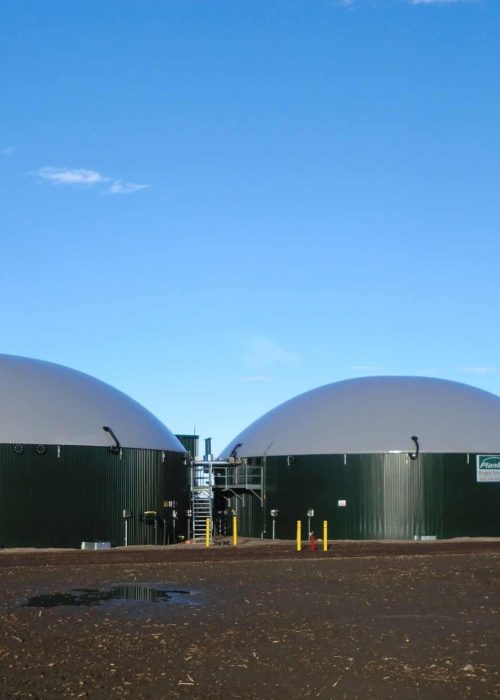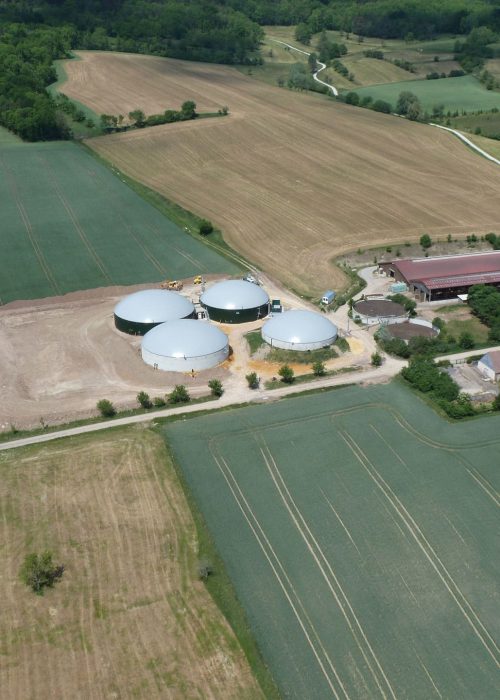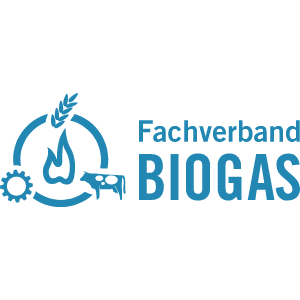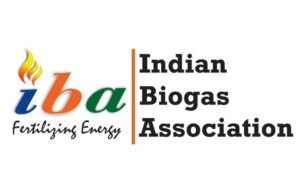Future security with biogas
Your benefits at a glance
Additional income
Rely on planning security: Maximise the profitability of your operation with a reliable income.
High energy security
Reduce dependencies: With biogas plants from PlanET you can achieve greater energy security for electricity and heat.
Improving sustainability
Support the regional nutrient cycle: Recycle organic residues.
More future security
With innovative technology for economical and environmentally friendly solutions, you secure the future of your business.
Full service from the beginning
Consultancy & design
Planning of permits
Plant construction
Service
Training
I'm here for you!
Do you have any questions about our services? Or would you like specific advice? I’ll be happy to help you. Get in touch with me – or make an appointment online. I look forward to hearing from you!

Our answers to your questions
The time required to operate a biogas plant is approximately 1 hour per 100 kW.
For a 75-kW biogas plant, for example, the following quantities of substrates are required:
- Cattle slurry: 28m3 per day
- Cattle manure: 10t per day
Indicative values for the annual production of slurry/manure by cattle, young cattle and horses:
- Cow or cattle slurry: 28m3 per year
- Cow or cattle manure: 18t per year
- Bull/young cattle slurry: 10m3 per year
- Bull/young cattle manure: 9t per year
- Horse manure: 14t per year
- Biogas plants offer a long-term perspective, real value creation and sustainable management, because the residues generated in agriculture such as slurry and manure can be converted into valuable energy in the form of gas, heat and electricity with biogas plants.
- Due to the high nutrient content, the fermentation residues produced during fermentation are ideal as organic fertilizer.
- Self-consumption of electricity from the biogas plant has become increasingly attractive in recent years also for biogas plant operators, who can still claim a comparatively high buy-back price.
- Counting post-digesters as storage space: Taking into account the input materials, residence times and the respective degradation efficiencies of the substrates used, post-digesters can assume up to 70 percent of the total volume as storage space.
In order to feed biogas into the gas distribution system, it must be upgraded beforehand. Since biogas is compatible with fossil natural gas, it can be used by means of existing pipelines and storage facilities regardless of where and when it is produced.
- Biogas/biomethane is renewable:
Biogas/biomethane has one of the best life cycle balances. It saves several million tonnes of CO2 every year: in the heat market, in electricity generation and when used as fuel. - Biogas can be stored:
Biogas is almost the only renewable energy source that can be stored. The natural gas grid is available for this as well as the existing natural gas storage facilities. Generation and use can be decoupled in time and space – this offers significant economic benefits. - Biogas is flexible and efficient:
With biogas, electricity can be flexibly generated in CHP plants. Bio natural gas can be used 100 percent in the heating market or as an admixture in a flexible proportion. Processed biogas can also be used as fuel. Biogas is also available as balancing energy. - The infrastructure is available:
Processed biogas can also be transported over long distances via the well-developed natural gas grid. There are no economic costs for transport or storage. - Biogas enables value creation:
Biogas creates added value in rural areas. The production of biogas or biomethane has created jobs – not only in agriculture, but also in plant construction, in suppliers and service companies, in trade and distribution, and in the operation of CHP plants. Production of biogas and biomethane brings further valuable contributions to rural regions. Thus, value creation takes place almost exclusively in rural areas in the immediate vicinity of the plant. The raw materials produced – sugar beet, maize plants, waste and residues from agriculture – are often transported to the biogas plant over only a few kilometres. The residual digestate that remains after the fermentation of these raw materials is fed back into the agricultural production cycle as fertilizer.
